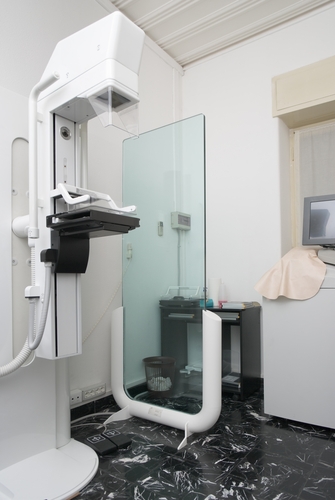Developing applicable appropriateness criteria for ordering imaging procedures has become one of the major pain points in diagnostic radiology. This is especially true for sports-related injuries, as many athletes can experience issues with their joints – such as the elbow, knee and wrist – as a result of their performances.
Although a referring physician’s first thought might be to request exams, it may be an unnecessary and expensive endeavor that should have been avoided altogether. To assist doctors with determining the appropriateness of sports-related imaging, the American Medical Society for Sports Medicine released a set of recommendations regarding care strategies for athletic injuries, according to AuntMinnie.com
The list includes suggestions to avoid the following scans:
- Brain CT or MRI to examine acute concussions, unless there are neurological symptoms or concerns over skull fractures
- Knee MRI for a patient with anterior knee pain without mechanical symptoms, unless the patient shows no improvement after a rehabilitation program
- Knee arthroscopy as initial management for degenerative meniscal tears without mechanical symptoms
To image, or not to image
All too often, referring physicians jump to order digital imaging for sports-related injuries, but that does not have to be their first option of diagnosis. In some scenarios, such as a locking knee, a procedure may be necessary, but many doctors are not familiar with all of the symptoms that warrant procedures like CT and X-ray.
“Then it is appropriate to order an MRI more quickly [rather] than later, the reason being that physical therapy in those scenarios won’t work and may in fact be harmful,” said Thomas Magee, M.D., managing partner at NeuroSkeletal Imaging in Merritt Island, Florida, quoted by AuntMinnie.com.
Because most patients will visit their primary care doctors for sports injuries, they are often referred to an orthopedic specialist who may have his or her own MRI equipment on-site. This leads to concerns about the overutilization of imaging procedures, as these physicians could receive financial benefits from using their own facilities. By collecting fees for exams, doctors might contribute to rising costs in health care when they have a fiscal interest in the equipment being used.
Time to get smart
One of the potential consequences of overutilization is that it may draw the attention of the U.S. Centers for Medicare and Medicaid Services, an organization at the epicenter of health care reform. The federal agency could examine instances of reimbursement and implement cuts to payments if it believes that physicians are pushing the limits of ordering diagnostic imaging.
As part of the Protecting Access to Medicare Act of 2014, the legislation that delayed the compliance deadline of ICD-10, a provision stipulates that physicians must consult appropriateness criteria when deciding on imaging procedures for Medicare patients. But initiatives like Choosing Wisely, which includes organizations like the AMSSM and the National Physicians Alliance, seek to educate physicians on ordering exams.
The campaign aims to promote conversations between doctors and patients that facilitate the delivery of proper care. Their decisions are to be supported by clinical evidence, harm-free, truly necessary to treatment strategies and not duplicative of previous procedures. The concept of Choosing Wisely was developed by the NPA, which created a set of three lists of steps for physicians to follow in order to promote the effective use of health care resources.
While the guidelines from the initiative should not be used to determine insurance coverage decisions, they should spark conversations about appropriateness and necessary treatments. Although every clinical situation is unique, providers should follow the recommendations of the AMSSM and Choosing Wisely to determine the right care plans for their patients.
Contact Viztek for more information.
Latest posts by Steve Deaton (see all)
- Practice Better Radiology to Avoid Malpractice Lawsuits - July 16, 2014
- Medical Imaging Data Can Help Improve the Patient Experience - June 19, 2014
- Replace Outdated PACS Systems to Experience Cost Savings in Imaging - June 16, 2014










